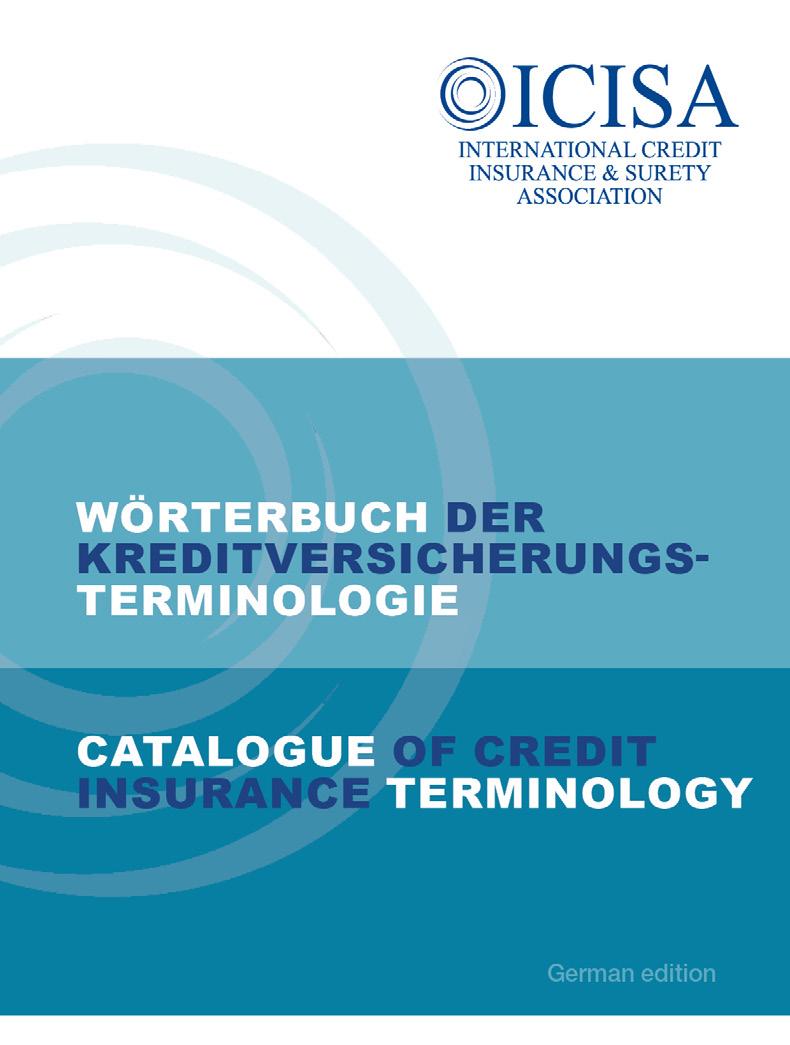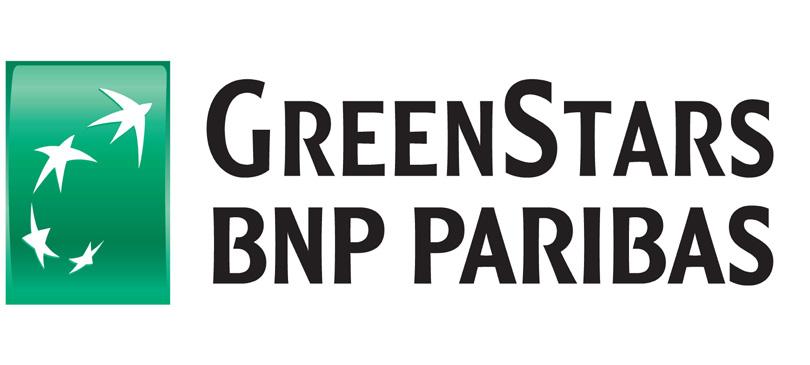
16 minute read
ESG Integration into insurance business
ICISA Welcomes its newest member: GreenStars
ICISA members warmly welcomed GreenStars as a new member to the association. Paul Wollny, Chief Executive Officer at GreenStars, kindly agreed to discuss about his company and the reasons behind joining ICISA.
Advertisement
Member Profile
GreenStars is a credit insurance company with a focus on single risk credit insurance for banks. The company is indirectly owned by BNP Paribas S.A., Paris, the largest bank in Europe and the world’s seventh largest bank by total assets. The motivation for the creation of GreenStars was to facilitate, as a specialised insurer, a broader and more strategic interaction between the banking and the credit insurance industry. In addition to its own track record the company benefits from 20 years of experience of credit risk distribution of its ultimate parent company. Also with the support from the reinsurance market, GreenStars established an independent underwriting of credit risks.
Policies are issued in more than 20 different jurisdictions covering risks around the globe. As a result, GreenStars has a welldiversified portfolio in terms of regions, industries and types of credit risk.
Motivation and expectations
Asked about their motivation to become ICISA members, Paul mentioned the chance given by ICISA “to better understand opportunities and challenges for the industry”, as well as the chance “to learn and contribute based on our deep understanding of the banking industry which as well is risk taker for credit”.
When it comes to expectations, Paul highlighted the role ICISA has as a platform for dialog between industry companies: “GreenStars has an excellent knowledge about banking products. That’s an experience GreenStars can share with the credit insurance market. On the other hand, I want to ensure that GreenStars continues to understand best practices and experiences from the credit & surety (re) insurance market.
In other words, we want to facilitate for the members of ICISA the exchange between insurance and the banking world without having to spend years or decades in credit departments of the other industry. The collaboration between banks and credit insurers works increasingly well for all parties involved. However, there is still room for improvement concerning the better understanding of the other. That’s where we want to contribute and exchange with our peers.”

One of the main topics that Paul wants to be discussed withing ICISA is the Single Credit Risk Insurance and understanding of the roots from where the single credit risk insurance started: “As a member of ICISA we want to deepen our understanding of the development of and reasons for general market standards as they do exist today. As a subsidiary of a bank, we are very familiar with the banking approach to credit risk management. In this growing and evolving market, we certainly can contribute to a better understanding of the underlying drivers and their impact on credit insurers who want to participate in these risks in a collaboration with banks. A hot topic in this respect are certainly developments in the regulatory environment of insurers, reinsurers and banks.
For example, exclusions which are standard in whole turnover credit insurance policies are challenged by banks for the single credit risk market. We can definitely contribute to the discussion about the reasons for different approaches and their impact on banks and insurers.”
A second topic shared by Paul as being interesting for GreenStars is the question why single risk credit insurers of single risks pay insurance premium tax in some jurisdictions when accepting the same credit risks as banks do who are sometimes more sophisticated in their statistical analysis of credit risks than some credit insurers. Furthermore, Paul suggests sharing best accounting practice especially in the light of the introduction of IFRS 9 and IFRS 17.
Paul also hopes that the current ICISA members can learn from GreenStars. As he says, “more and more insurers are entering into the niche, in which we are active. Some of them are extremely sophisticated while others are still learning. ” He believes that ICISA will benefit from a member coming from a banking perspective, increasing the knowledge between partners: “I think GreenStars is in an excellent position to facilitate and enhance a better mutual understanding between insurers and insureds based on our experience in this market segment. As a subsidiary of a banking group with only a few insurance subsidiaries, it is key for us to ensure alignment with our peers in terms of general understanding.”
Membership of ICISA committees
Paul likes the idea that in the long run, GreenStars will be active in all ICISA committees, but highlights also the limited resources the company has: “GreenStars is a very small team. With our limited resources, we unfortunately will have to make a choice on which committees we are focusing first on”. While it is still to be decided which committees GreenStars will participate in, for Paul it is clear that “ICISA to me seems to be the best forum to discuss topics which go beyond the day-to-day negotiation of terms and conditions between insureds, insurers and reinsurers. As a member of ICISA, we hope that we can contribute to a profitable and therefore sustainable portfolio diversification and value.”
Human versus the Machine
By Michael Holley, Prof. Schumann GmbH
According to news reports, the series of events which led to the Greensill collapse was initiated by discovery within a credit insurer that an underwriter in a distant subsidiary had exceeded his or her authority. This illustrates an ongoing issue for us all – how can we be sure that the judgement of our human underwriters is sound at all times, and how can we ensure that all parts of a geographically diverse organisation remain in step with each other? Can the new technology, including AI and machine learning help?
One of the best selling books of recent years is ‘Thinking, Fast and Slow’ by Israeli psychologist, Daniel Kahneman. In this rather alarming book, Kahneman shows how hopelessly unreliable human judgement is. After reading it I felt like throwing my brain in the waste bin. You may have seen some statistics yourself, such as the expert judges that are much more likely to give out ‘guilty’ sentences when they are hungry or tired.
Those of us who have been underwriting for a while must admit that we too, have occasionally fallen victim to unsound judgements after getting too friendly with a buyer or insured over some nice lunches and bottles of wine! While we can set processes to mitigate against these risks, it would be nice if we could harness technology to help correct the human weaknesses. The advantage of technology and AI is that the machine is not burdened by the ancient evolutionary flaws of the human brain. The machine is cold and calculating - the numbers are the numbers and the machine will always tell the truth.
On the other hand, machines and algorithms can be incredibly stupid. A Tesla on auto pilot will occasionally miss something which would be blindingly obvious to a human driver, crashing straight into a tree or some other obstacle. Similarly our credit risk models occasionally come up with an answer which an experienced underwriter can immediately see is utterly stupid.
The reason for this is that all risk models are imperfect reflections of reality. The amount of information and contextual factors that the human brain can take into account are almost infinite, whereas the machine has traditionally been limited to much more restricted data sets. The human brain has incredible flexibility to look at a problem from many angles. The financial information which we feed into our models is always out of date, whereas the human can visit a buyer and collect up to date information. Still, many people believe that Tesla will be able to keep improving automated driving, until the point is reached where the machine drives more safely than any human. It is a question of more data, more machine learning, improved algorithms, and the goal should then be within reach.
In the world of credit insurance, the models are also improving, and more data is becoming available too. These days, the companies we are assessing leave a much richer data trail than just the published financial statements. The written company reports, their twitter feeds and Linkedin announcements all contain language which AI can analyse and correlate to risk. Staff of each company leave a juicy and revealing data trail on Linkedin and Glassdoor. Even the Facebook and Instagram accounts of directors produce information which reflects the corporate governance of their companies, and which can be correlated to default probability.
Another advantage of AI compared to humans is that it is able to see correlations that the human brain is not capable of identifying. We are living in a world where the quantity of data available is much larger than anything encountered by human or animal brains during our evolution. It is not surprising then then that AI can outperform.
This will introduce a new challenge for us – it is sometimes hard for a human to understand decisions made by AI. Already we sometimes struggle to explain negative credit decisions to disappointed customers. This challenge may become greater in the future, as ‘computer says no’ is not an acceptable response. To extract this data automatically, to train AI to interpret it, and to improve our risk models accordingly will take enormous effort. Unfortunately, more resource is available to companies like Tesla than to credit insurers. Nevertheless, there can be no doubt that the credit insurance industry must progress in this direction.
Our vision must be to obtain much more data for each risk assessment - data which will be more up to date than the company accounts - and to feed this data into much more intelligent technological models. The resulting risk decisions will be free of the bias that always arises in human judgement. The decisions will be instantly shared by sophisticated IT across the entire company, reaching the most remote outpost right away.
We have some way to go, but the direction of travel is clear. As an industry we must focus our efforts on the technology which will make flawed and biased human judgements a thing of the past. Technology rather than large teams of human risk underwriters, is the way forward!

ANNOUNCEMENTS
Changes in the Surety Team of Travelers
Two new people joined the Surety team of Travelers:
Rebecca Yuditsky joined as an Underwriter on March 1st 2021. Rebecca, originally a surety underwriter from the US, moved to the UK in December 2020. She will support the existing team, and growing client base across Europe.
Steve Manwaring (ex-QBE) has agreed to join the team as Surety Director from the 25th October 2021. Steve will be responsible for growing Travelers presence in the UK SME market.

Steve Manwaring
Surety Director
Rebecca Yuditsky
Underwriter
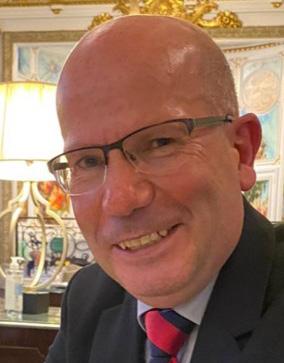
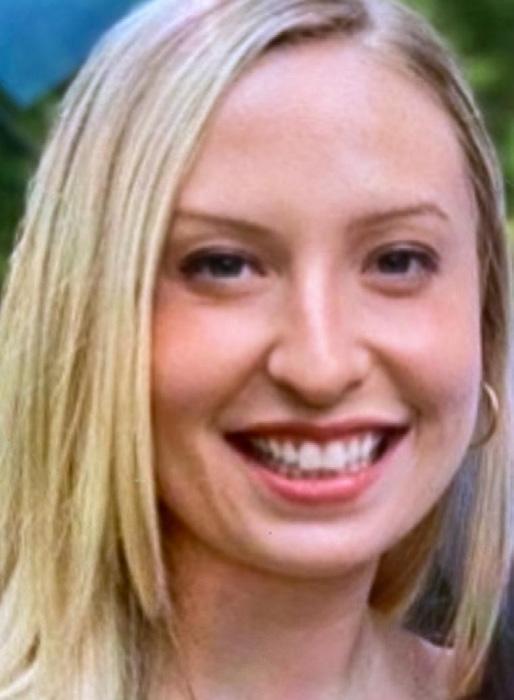
ICIC - Appointments of new CFO and Projects and Medium-Term Transactions Manager
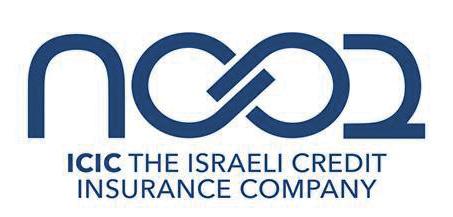
Mrs. Anat Aharon (MBA) was appointed Projects and Medium-Term Transactions manager. Over the last decade, Anat held a number of positions in the company’s underwriting division, the most recent of which was Head of Large risk underwriting, Chief export underwriter and member of the Underwriting division management team.
Mrs. Reut Israeli (CPA.)(ADV.) was appointed CFO on June 2021. Previously, Reut worked in Harel Insurance Investments and Financial Services LTD, as the Group’s Financial Controller. Reut has LL.B. from Tel-Aviv University and a diploma in Accounting.
ICIC is pleased to announce that Moody’s has upgraded the Insurance Financial Strength Rating (IFSR) of ICIC to A2 from A3, with a stable outlook.
Anat Aharon
Projects and MediumTerm Transactions Manager
Reut Israeli
CFO
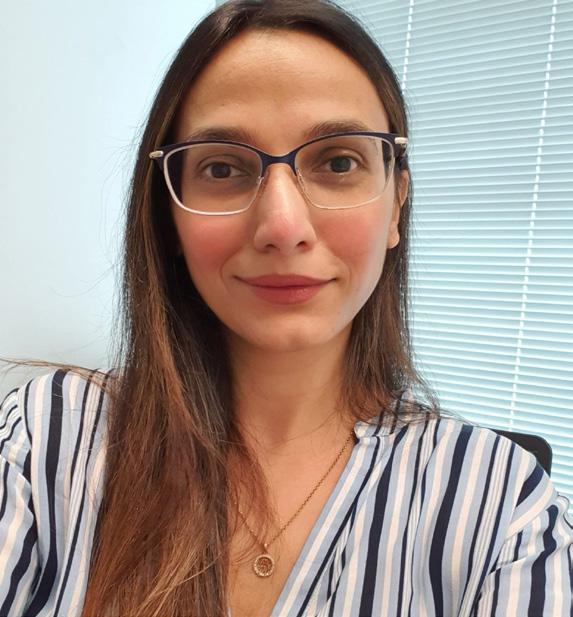
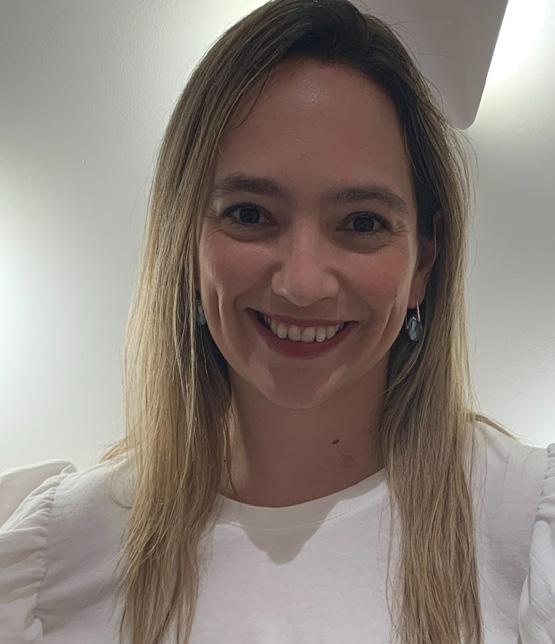
Coface SA strengthens further its leadership team
Coface announced the following appointments within its executive committee:
Antonio Marchitelli, currently CEO of Coface Western Europe Region, is appointed as Chief Executive Officer, Global Specialties, effective January 2022. In this newly created role, Antonio will drive Coface’s growth strategy in three key specialty product lines, i.e. Single Risk, Bonding and Debt Collection. He will design and roll out a global roadmap to accelerate growth and build Coface’s operational capability to develop these product lines.
Carine Pichon, currently chief financial and risks officer, will replace Antonio as CEO of Coface Western Europe Region. Carine has been running finance and risks globally since 2011. Her appointment recognizes her long-standing contribution to Coface’s transformation and in particular to the Fit to Win and Build to Lead strategic plans as well as Coface’s IPO.
Phalla Gervais will replace Carine in her role of CFO, in charge of finance and risks. Phalla comes from Aviva, where she was CFO and Deputy CEO of Aviva France. She has a long track record of finance transformation. Her expertise, combined with robust leadership skills, will be important assets to Coface and the finance function. Phalla will join Coface on September 6, 2021 and will be a member of the group management board. From now on and for the next two months, Carine and Phalla will work together to ensure a smooth transition.
Lastly, after several months as acting in this role, Coface is happy to confirm Jaroslaw Jaworski in the role of Chief Executive Officer of Coface Central and Eastern Europe Region, effective today. Jaroslaw was previously Poland Country manager since 2012. He successfully positioned Coface as a leading player in this important market. Antonio, Carine, Phalla and Jaroslaw will report to Xavier Durand and will be part of the executive committee.
“These appointments further strengthen Coface’s leadership team. They demonstrate that the organization is able to grow talents with diverse career paths and to attract external leaders with strong track records. The diversity of these profiles is a key asset for Coface to deliver significant achievements in the roll out of our strategic plan Build to Lead.”
‒ Xavier Durand, Coface CEO


Several new appointments at Atradius

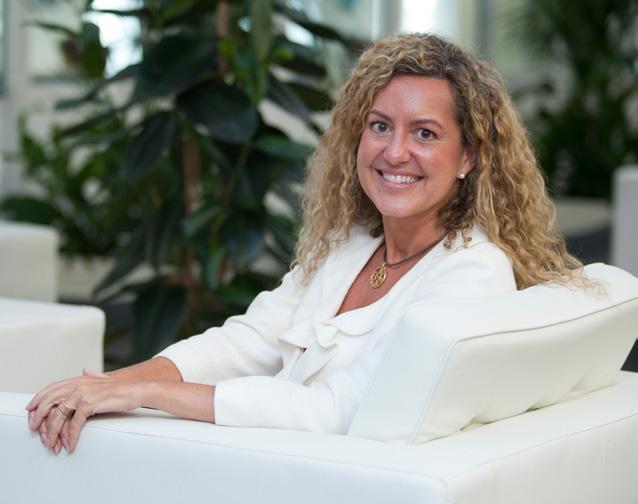
Marta Nodal Regional Commercial Director
Marta Nodal, previously Commercial Director of Crédito y Caución (CyC), has been appointed Regional Commercial Director for Spain, Portugal and Brazil, reporting directly to the Chief Market Officer of Atradius, Andreas Tesch. She joined Atradius CyC in 1999 as Internal Auditor coming from Ernst & Young. In her 22 years with Atradius CyC, Marta has held various functions in the company, including Reinsurance & International Program / Market Research Manager, Corporate Strategy Manager, and in 2009 she started in her role as Commercial Manager for Spain, Portugal and Brazil. The appointment follows the retirement of Jacinto Iglesias, who is ending his career after more than 46 years with Atradius CyC and a decade at the helm of the business in Spain, Portugal and Brazil.
Gino Watty, Risk Director of Crédito y Caución (CyC) until end of June 2021, has been appointed Director Risk Services, covering Spain & Portugal. In Gino’s 23 year career at Atradius CyC, he has specialised in Risk functions in various positions evolving from Risk Analyst to Large Risk Manager and ultimately, in 2012 to his most recent role as Risk Manager for Spain & Portugal. Gino will report to the Chief Risk Officer of Atradius N.V., Christian van Lint.
On 1st September 2021, Dirk Hagener took over responsibility for the Atradius’ central Group Communications & Commercial Development function. Dirk has a background as a strategy consultant and e-commerce specialist. He started his career in Atradius Germany in 2002 and worked in several commercial support functions reporting to the Regional Director of Central and Eastern Europe. In 2007 he moved to the headquarters in Amsterdam to take over the Head of Programme Management role and in 2010 the Head of Corporate Strategy role. In 2012, Dirk was appointed Director Strategy and Corporate Development. In his new role, Dirk will report to Andreas Tesch, the Chief Market Officer of Atradius N.V.
Frederik Devooght has been appointed as the new Country Manager for Belgium & Luxembourg. Frederik joined Atradius in 2007. In Atradius Frederik gained experience as a credit analyst and in project management. Frederik successively took positions in sales and account management at Atradius. For the last four years, Frederik was Head of Commercial Management for Atradius in Belgium and Luxembourg. Frederik’s predecessor Christophe Cherry was appointed Regional Director for France, Belgium and Luxembourg in April 2021. Stecis – THE leading academy for Trade Credit Insurance and Surety, will organize new webinars and courses. Founded in 2006 on demand of the Trade Credit Insurance and Surety industry, Stecis has trained in the past 14 years thousands of professionals, many of them working in the TCI and Surety industry but also for banks, brokers or in credit management departments. STECIS tutors have or had senior positions in the financial industry, allowing them to share a lot of knowledge and experience including real case studies and actual developments. Consequently, our tutors continuously receive average scores above 9 from 10 from the participants.
In 2021 Stecis organized masterclasses as additional level next to the traditional foundation and advanced course. The first launched masterclass is about Innovation and Digitalisation in Trade Credit Insurance and Trade Finance. Topics such as digitization, connectivity, big data and technologies (e.g., blockchain) are fuelling innovation in the traditional credit insurance and trade finance industry are addressed during this Masterclass. The next masterclass currently developed will cover non-traditional Trade Credit Insurance products as single buyer or transaction over, XL-Loss or financing support.
Next to the beforementioned standard courses STECIS offers tailormade inhouse training sessions or webinars for your employees. Please contact Rob Klouth, Chairman of Stecis, via rob.klouth@stecis.org.
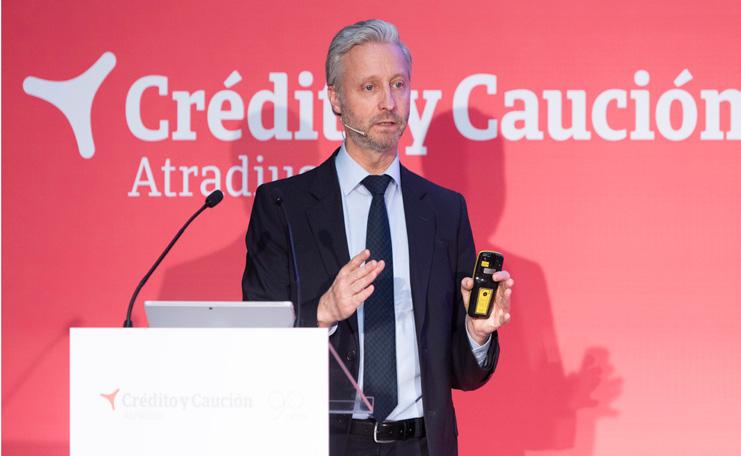

Gino Watty
Risk Director of CyC
Dirk Hagener Group Communications & Commercial Development
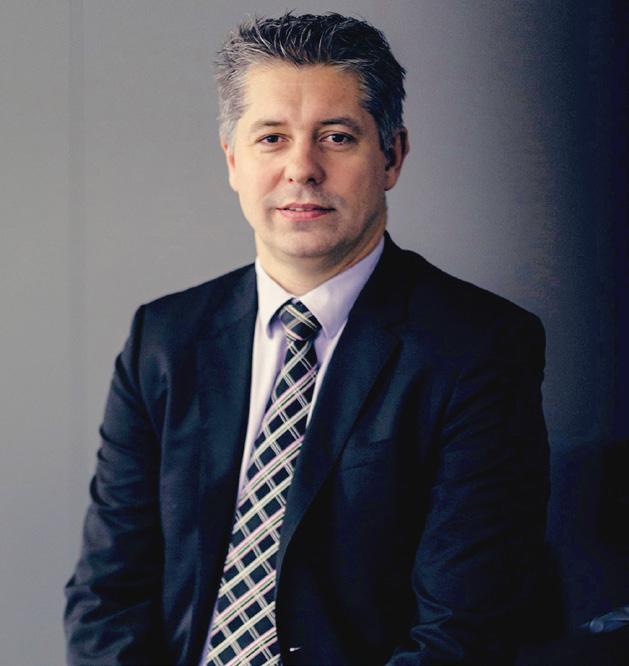
Frederik Devooght Country Manager Belgium & Luxembourg
Here are the next courses organised by Stecis:
Webinars: Fundamentals of Trade Credit Insurance – 26th of October 2021 Innovation and digitalisation in Trade Credit Insurance and Trade Finance – 28th of October 2021
Classroom trainings Trade Credit Insurance Foundation Course: 4 & 5 November 2021 Advanced Trade Credit Insurance Course : 9 & 10 November 2021 Innovation and digitalisation in Trade Credit Insurance and Trade Finance: 11 November 2021 Surety Bonds Foundation Course: 9 & 10 November 2021 Advanced Surety Bonds course : 11 & 12 November 2021
For more details about Stecis’ courses visit the website www.stecis.org or send an e-mail to info@stecis.org.
NOW AVAILABLE
Catalogue of Credit Insurance Terminology
The new German edition of the catalogue is available. It can be downloaded from the ICISA website at www.icisa.org
To order a hard copy, please send an email to secretariat@icisa.org
